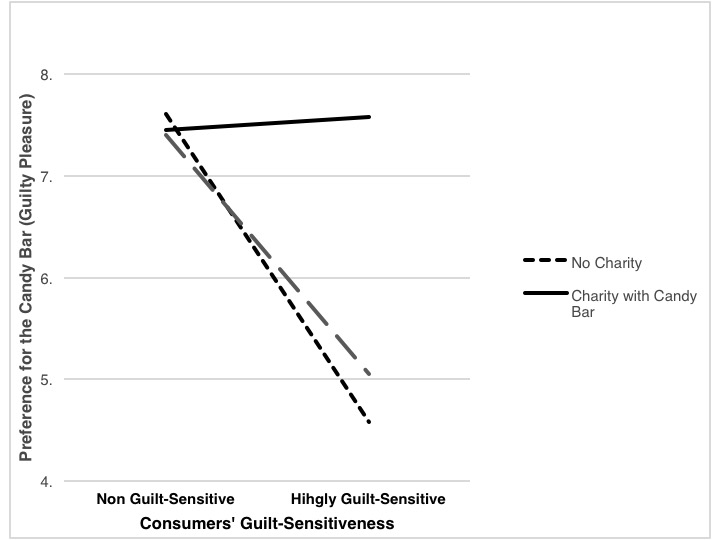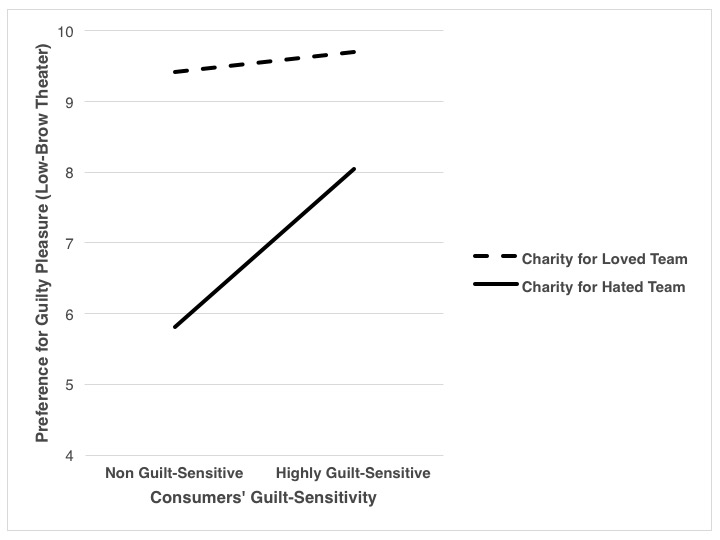 Choosing the right product impacts sales more than which charity you benefit, argues Yael Zemack-Rugar.
Choosing the right product impacts sales more than which charity you benefit, argues Yael Zemack-Rugar.
Corporate Social Responsibility is the latest craze in marketing strategy, and often takes the form of companies donating a portion of their proceeds to select social causes. Companies work hard to identify partnerships that would benefit both them and the charities. But what is the trick to making such efforts effective?
I offer an answer to this question in a recent paper. My research suggests that instead of focusing on which charity to engage with, companies should focus on which products to associate with charitable giving, and should also understand which customers are most affected by social-corporate responsibility offers.
Specifically, my research suggests that companies should offer to donate a portion of proceeds from guilty pleasure products, such as candy bars, low-brow movies or magazines, and other daily indulgences. When companies add a charitable donation to a guilty pleasure, they increase purchase of the guilty pleasure product, particularly from a customer segment that may not otherwise purchase much.
Who is this segment? This segment is referred to as “guilt-sensitive” and includes consumers who experience a lot of guilt when they consider buying guilty pleasures. This guilt keeps consumers in this segment from purchasing guilty pleasures. However, consumers alleviate their guilt by donating to charity. Thus, when companies offer to donate a portion of proceeds with purchase, consumers can tell themselves that they are purchasing not in order to enjoy the guilty pleasure, but in order to support the charity. As a result, consumers can now enjoy the pleasure, guilt free!
As a result of consumers’ desire to enjoy guilty pleasures, guilt-free, my research shows that consumers will purchase guilt-pleasures that donate to charity, even when they deeply dislike the supported charity. Thus, it is more important what kind of product companies attach donations to, than which charity they select.
The Data
In one study, consumers were asked to indicate their preference for a fruit (a utilitarian product) versus a candy bar (a guilty pleasure). Three conditions were created, such that either the fruit, the candy bar, or neither offered to donate a portion of proceeds to benefit cancer research. As seen in the chart below, when neither product offered a charitable donation, consumers who were highly guilt-sensitive preferred the candy bar less than consumers who were not guilt-sensitive. This is because highly guilt-sensitive consumers’ experience guilt when they choose guilt-pleasures, and therefore, tend to avoid choosing guilty-pleasure products. However, once a charitable donation was added to the candy bar, guilt-sensitive consumers increased their preference for the candy bar, and preferred the candy bar as much as non guilt-sensitive consumers (see the top line in the chart below). In contrast, adding a charitable donation to the fruit (the utilitarian product) did not affect preferences..
This finding suggests that if companies intend to spend money on charitable donations, they should attach such donation to a guilty pleasure. This will increase purchase from those consumers that otherwise avoid the company’s guilty pleasure products.
Figure 1 – Charitable Donation With Guilty Pleasure Increases Preference

Perhaps the most stunning finding was that for guilt-sensitive consumers, it didn’t matter which charity was supported. Why? It turns out that consumers are so focused on the fact that the charity can allow them to indulge guilt-free, that they overlook the specific nature of the charity. Thus, consumers who were guilt-sensitive had an equally high preference for a guilty-pleasure that donated to charity they liked as they did for a guilty-pleasure that donated to a charity they disliked. Specifically, in a lab study, consumers were asked to indicate which of two movie theaters they would select for a night out: a theater offering guilty-pleasure movies (e.g., Anchorman, Ted) or a theater offering more utilitarian movies (e.g., A Beautiful Mind, The Pianist).The movie theater that offered the guilty-pleasure movies was donating a portion of proceeds to charity. The charity was a children’s hospital charity, named after the consumers’ loved or hated (i.e., rival) sports team .
Of course, consumers’ showed increased preference for the product associated with their loved team (see the top line in the graph below).
However, consumers’ should show reduced preference for the product associated with the disliked, rival sports team, because dislike for rival sports teams runs deep. Instead, guilt-sensitive consumers chose the guilty-pleasure theater equally, whether it donated to the liked or disliked team. Only non guilt-sensitive consumers were affected by the nature of the charity, showing reduced preference for the guilty-pleasure theater when it supported the disliked team.
Figure 2 – High Preference for Product Supporting Disliked Charity

Recommendations and Contemplations
These findings offer to create a win-win for both companies and charities. The data suggests that companies should offer charitable donations with the purchase of guilty-pleasures. This will increase sales from their lowest-purchase segment. In turn, increased sales will lead to increased donations, benefiting charities. Moreover, companies may be able to spend less time and money figuring out the best charity to choose. It turns out that for guilt-sensitive consumers—any cause will do!
Charities would be likewise smart to partner with companies that sell day-to-day guilty pleasures. Lesser known charities may be particularly likely to benefit from such partnerships, as guilty pleasures cause consumers to overlook the nature of the charity.
These findings also raise questions regarding recent trends in fundraising. In an attempt to be ethically responsible, some companies are moving away from fundraisers that offer guilty pleasures. For example, recent fundraising for the Boy Scouts offers popcorn, rather than the cookies offered by their Girl Scout counter parts. While this move may benefit the consumers’ waistline, the data above suggests it may hurt the organization’s bottom line.
Similarly, recent legislation is limiting schools’ ability to fundraise via bake sales, setting restrictions on the amount of fat and calories allowed in goods sold on school campuses. While such efforts are admirable and understandable in the context of childhood obesity, their impact on schools’ ability to raise funds in support of key activities is unknown. Our research suggests that these limitations may have some unintended consequences for schools’ financials. This is not to say that our nation’s health should not be prioritized—it should. This is merely to say that charities, who benefit a myriad of worthy causes themselves, should be cognizant of their fundraising partnerships and choices.
Featured image credit: Guilty pleasure, by Yeelen, CC-BY-2.0
This post first appeared at the LSE Business Review and is based on the paper When Donating is Liberating: The Role of Product and Consumer Characteristics In the Appeal of Cause-Related Products, co-authored with Rebecca Rabino, Lisa Cavanaugh, and Gavan Fitzsimons, Journal of Consumer Psychology, June 2015.
Please read our comments policy before commenting.
Note: This article gives the views of the author, and not the position of USAPP – American Politics and Policy, nor the London School of Economics.
Shortened URL for this post: http://bit.ly/2aBZUhj
_________________________________
 Yael Zemack-Rugar – University of Central Florida
Yael Zemack-Rugar – University of Central Florida
Yael Zemack-Rugar is an Assistant Professor of Marketing at the University of Central Florida’s College of Business. Her research is aimed at understanding how and why consumers persist at important long-term goals, and how to help them do so even in the face of short-term temptations. Dr. Zemack-Rugar explores sequences of choice in goal areas such as health, nutrition, savings, academics, fitness, and other goals central to consumer wellbeing. Her work has been published in elite journals such as the Journal of Marketing Research, the Journal of Personality and Social Psychology, and the Journal of Consumer Psychology. She seeks to create a deeper understanding of consumer motivation in ways that can increase both consumer welfare and company profits, creating a win-win.






